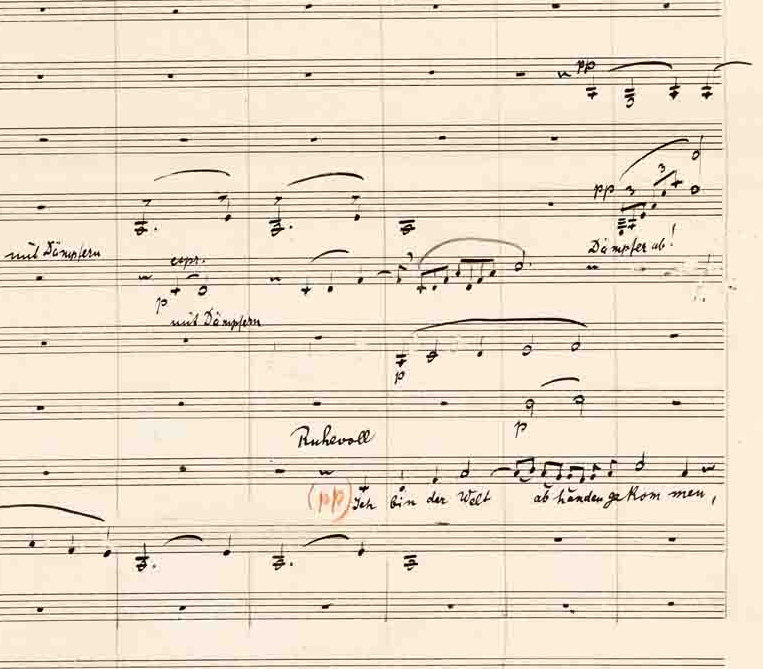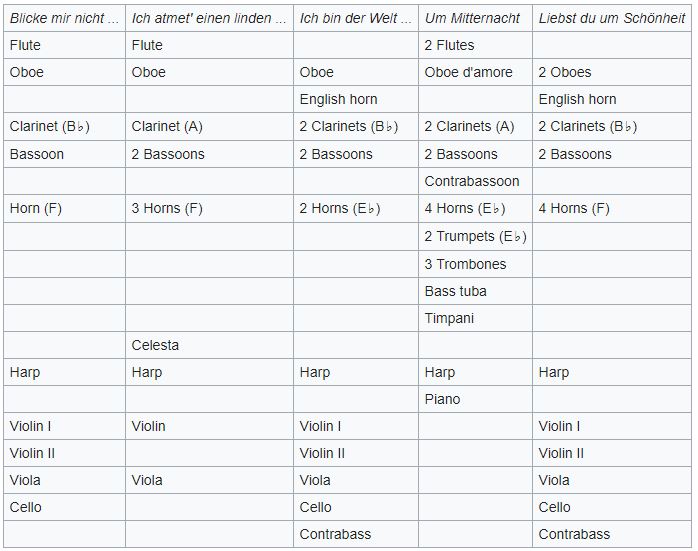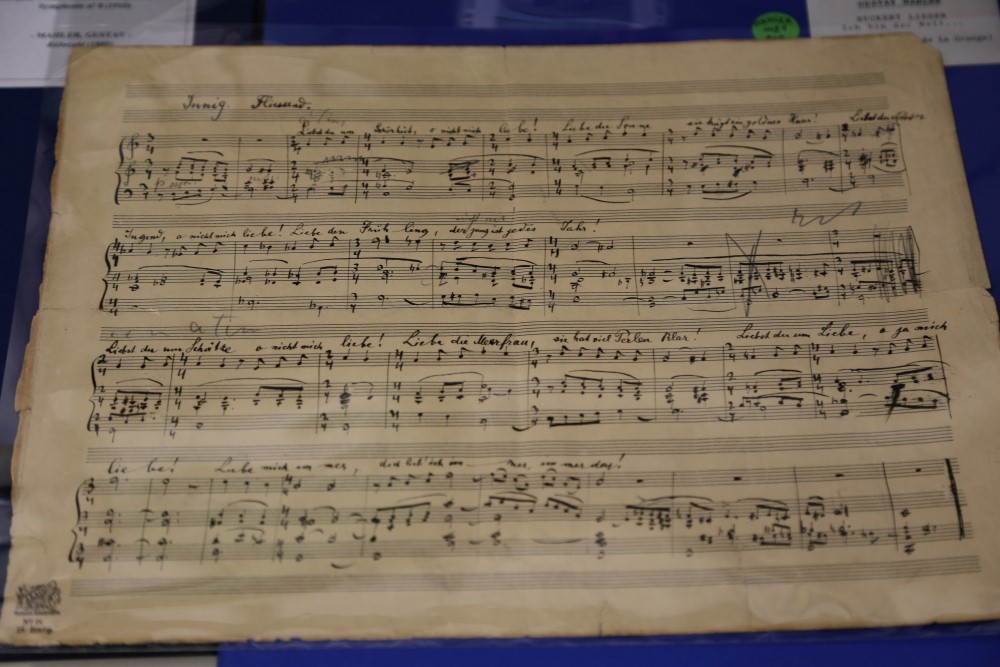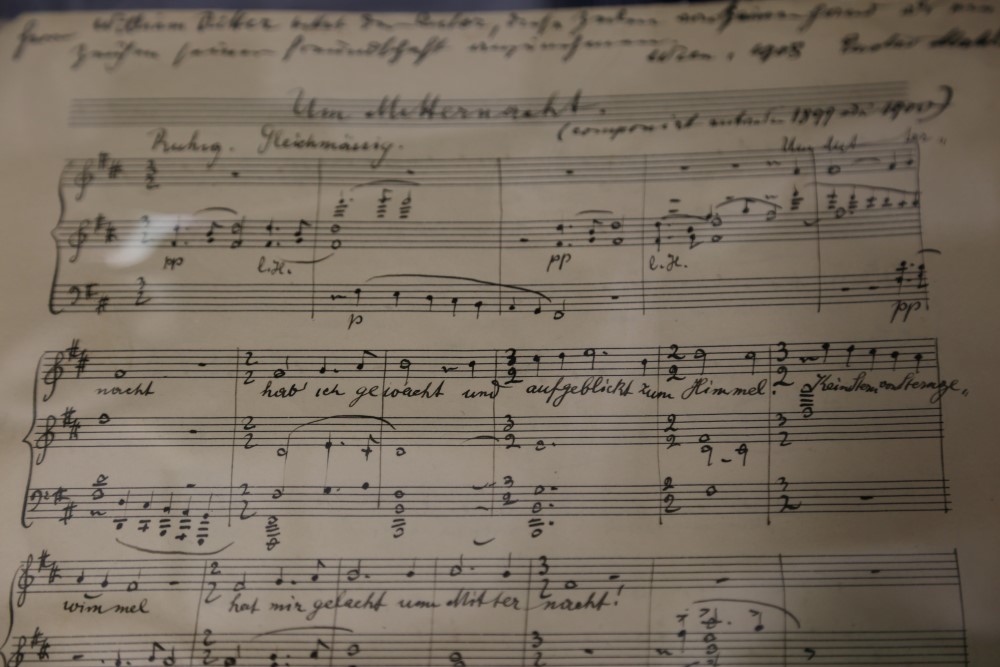The poetic theme of “Ich bin der Welt abhanden gekommen,” one of Mahler’s most beautiful and moving songs, is again unusual. It evokes the peace achieved through the poet’s withdrawal from the everyday turmoil of the world and his absorption in the most meaningful and central aspects of his life: his heaven, his life, and his song. (By implication the last is the product of the preceding two).
Score Lied Ruckert 4: Ich bin der Welt abhanden gekommen for voice and orchestra.
The comparatively long introduction, presented once more by an orchestra of woodwinds and strings, but this time with an English horn, and without the brighter sound of a flute, presents a wonderful expanding melody that moves upward from a simple two notes, to three, and then a more rapid extension to the line’s melodic peak, followed by a descent that completes the arc. A variant of this descent is used again to conclude and frame the three stanzas of the main body of the song.
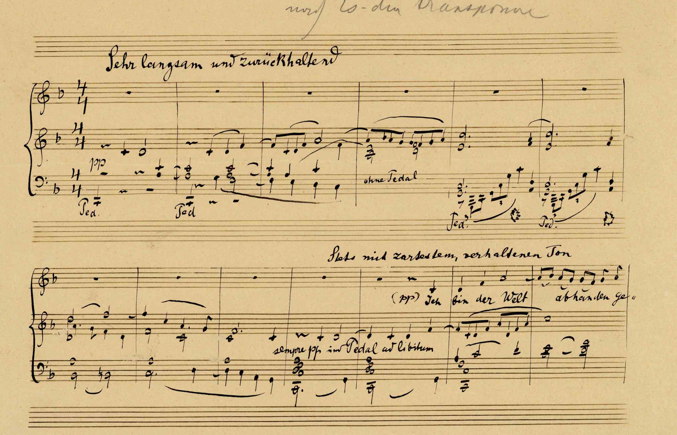
Score Lied Ruckert 4: Ich bin der Welt abhanden gekommen for piano.
The setting of the beginning of each stanza draws on the introduction in different forms, and in each continues differently, with the second moving further afield in order to return more clearly to the opening in the third. In its melodic development, the transparent interweaving of the instrumental and vocal lines and in the subtle fluctuation between inner tension and repose, the song represents one of Mahler’s supreme achievements. At the same time it points to a later masterpiece, the “Abschied” movement in Das Lied von der Erde.
Score Lied Ruckert 4: Ich bin der Welt abhanden gekommen autograph.
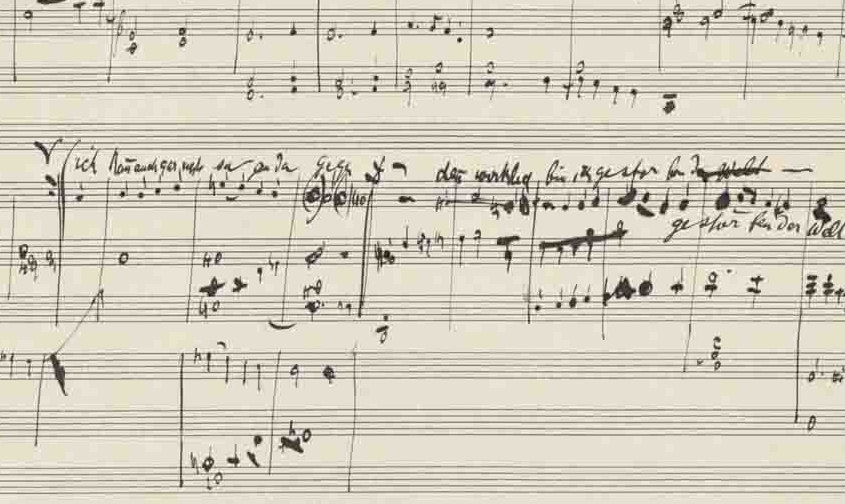
Score Lied Ruckert 4: Ich bin der Welt abhanden gekommen autograph detail.
The poetic theme of “Ich bin der Welt abhanden gekommen” (I have been lost to the world), one of Mahler’s most beautiful and moving songs evokes the peace achieved through the poet’s withdrawal from the turmoil of the world into his heaven, his life, and his song. The comparatively long introduction is used as both an interlude and a counterpoint with the singer. It features that orchestral symbol of isolation, and often desolation, the English horn, with an arch-shaped melody that moves upward from a simple two notes, to three, and then more rapidly to the line’s melodic peak, followed by a descent that completes the arch.
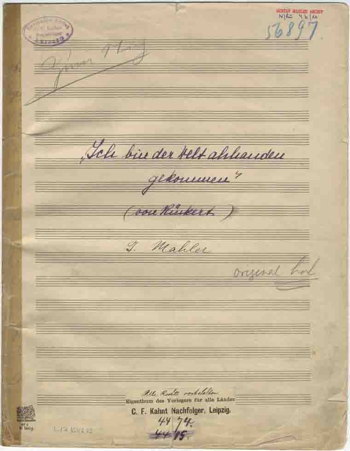
Score Lied Ruckert 4: Ich bin der Welt abhanden gekommen copy Alma Mahler.
The voice then repeats the melody, in a dialogue with the English horn. Mahler sets the song’s three stanzas irregularly by repeating the interlude after the third line of the first stanza with only the shortest break between the last line and the first line of the second stanza. The second stanza presents a passionate contrast as the poet declares himself dead to the world. The final stanza begins with the song’s main theme but continues with new musical material leading to the climax, the poet’s song. The English horn concludes the song echoing the final line of the voice.
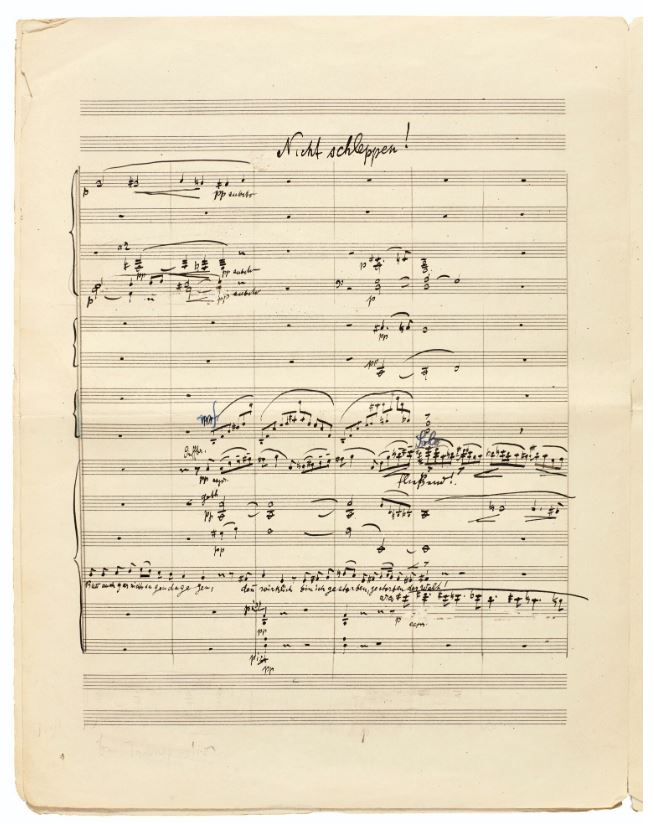
Year 1905. 01-11-1905. Manuscript Lied Ruckert 4: Ich bin der Welt abhanden gekommen. For solo voice and orchestra. The full score with an autograph presentation inscription on the title-wrapper to his friend, Professor Guido Adler (1855-1941) on the occasion of his fiftieth birthday (“Meinem theuern Freunde Guido Adler (der mir nie abhanden kommen möge) als ein Andenken an seinen 50. Geburtstag Wien 1. November 1905 Gustav Mahler.”), a working manuscript written in black ink on 18-stave paper, begun as a calligraphic fair copy, but with alterations, erasures and corrections added throughout, including an important revision excising the second half of bar 15 (altering the time-signature), additions in pencil and in blue and orange crayon (“Etwas fliessender–aber nicht eilen!”), and with, in the upper and lower margins and staves, faint traces of Mahler’s annotations, including musical notation, regarding the transposition of the song down a tone into E-flat major (see the music on pages 1, 2, 6, 9 and 10). 14 pages in all, folio (34.5 x 26.5 cm), on 3 bifolios numbered by the composer, the title-wrapper and the music of the song on 12 pages, enclosed within an additional wrapper inscribed by the recipient, Guido Adler, in blue crayon (“Autograph von Gustav Mahler” and “Neumen”) and 6 additional blank pages, Vienna, 1 November 1905, the paper a light cream colour, some damp-staining to the leading margins, horizontal creases along folds.
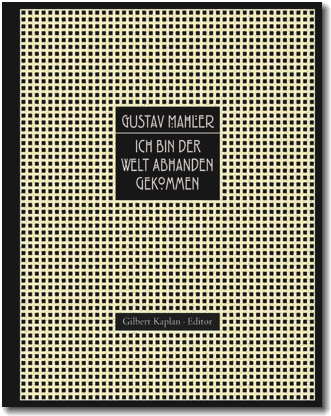
Publication by Gilbert Kaplan Edition.
Ich bin der Welt abhanden gekommen
Ich bin der Welt abhanden gekommen,
Mit der ich sonst viele Zeit verdorben;
Sie hat so lange nichts von mir vernommen,
Sie mag wohl glauben, ich sei gestorben!
Es ist mir auch gar nichts daran gelegen,
Ob sie mich fuer gestorben haelt,
Ich kann auch gar nichts sagen dagegen,
Denn wirklich bin ich gestorben der Welt.
Ich bin gestorben dem Weltgetuemmel!
Und ruh’ in einem stillen Gebiet!
Ich leb’ allein in meinem Himmel,
In meinem Lieben, in meinem Lied!
Listening Guide

